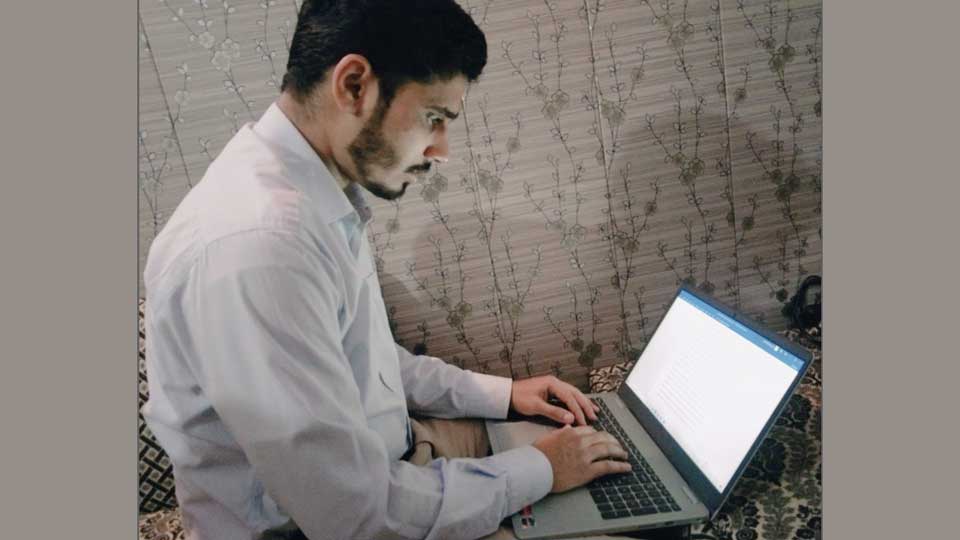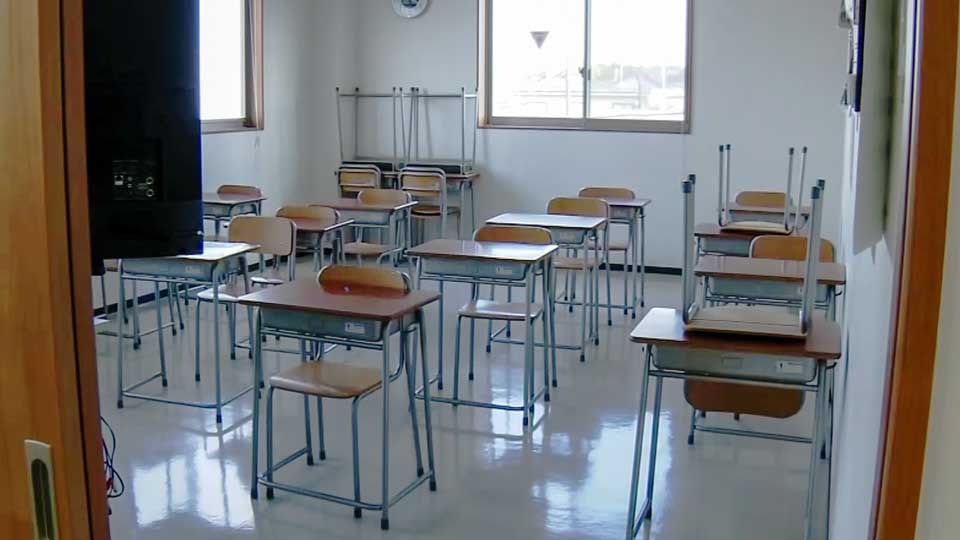"Feeling forgotten"
Monday's announcement was a disappointment for about 147,000 students who have been waiting up to two years to begin their studies in Japan.
Most of them are paying their own tuition for universities or language schools.
"We certainly do feel betrayed by Japan and abandoned because it seems like they just forgot about us," says Beatriz Reganassi Okumura, from Brazil. "I can't believe they're just letting 87 people enter."
The 26-year-old enrolled in a Japanese language school in October but has been forced to take her classes online because she hasn't been able to enter the country.
With a 12-hour time difference between Japan and Brazil, her classes last until 1:00 A.M. She says she's been struggling both physically and mentally.

Reganassi Okumura is paying full tuition for the remote course. She says she will drop out if she can't get into Japan by next semester, which begins in April.
"I still have hope because I really want to go [to Japan]. But the expectations are really low. Japan keeps surprising us with even lower decision making and I'm not sure."
Special circumstances
On Monday, Japan's Chief Cabinet Secretary Matsuno Hirokazu said the 87 students with government scholarships were being allowed to enter the country after "considering the public interest and the urgency of the matter."
Matsuno said the students all have less than a year remaining in their studies and need to be in a classroom to fulfill course requirements.
The announcement was also a shock to university student Azan Akbar. The 24-year-old from Pakistan has been waiting for his visa for more than a year.
He was thrilled to be accepted at Tokyo International University and hoped to be the first in his family to get a degree and study abroad. But he says these dreams have turned to disappointment.
Akbar has been taking classes online, but he lost his scholarship because he doesn't meet the requirement that a student be physically in Japan.
"I wasn't expecting this discrimination," says Akbar. "It has instilled in me a sense of inferiority complex that I am less important [than government-sponsored students]."

Academics worried
After months or even years of waiting, many students are starting to give up on studying in Japan. That's becoming a bigger concern for universities and language schools.
The border measures have prevented more than 1,100 international students at the University of Tokyo from entering the country.
Yaguchi Yujin, a professor at the university and Deputy Director General of the Division for Global Campus Initiatives, says the latest move offers a glimmer of hope. But he adds the government needs to open up much more.
"The important thing is that we don't stop here, each of us needs to remember that there are so many more students waiting outside of Japan," Yaguchi says.
"With 87 students being able to enter, it's not close to enough. We have to let all of them in."
Calls for more exceptions
The government says it will consider granting more exemptions on an individual basis.
A group of Japanese language school operators is lobbying the Education Ministry to do just that for private students, especially those who plan to enroll in schools or universities in April and need to take entrance exams.

Morishita Akiko, an official with a group of six associations representing Japanese language schools, says students all face the same time limit, no matter how their education is being funded.
"For many of the students, the end of March is a deadline," says Morishita, referring to the start of the next semester.
She added, "We may lose more students if we don't move quickly."
Also watch video (03:07)
Jan.18, 2022

